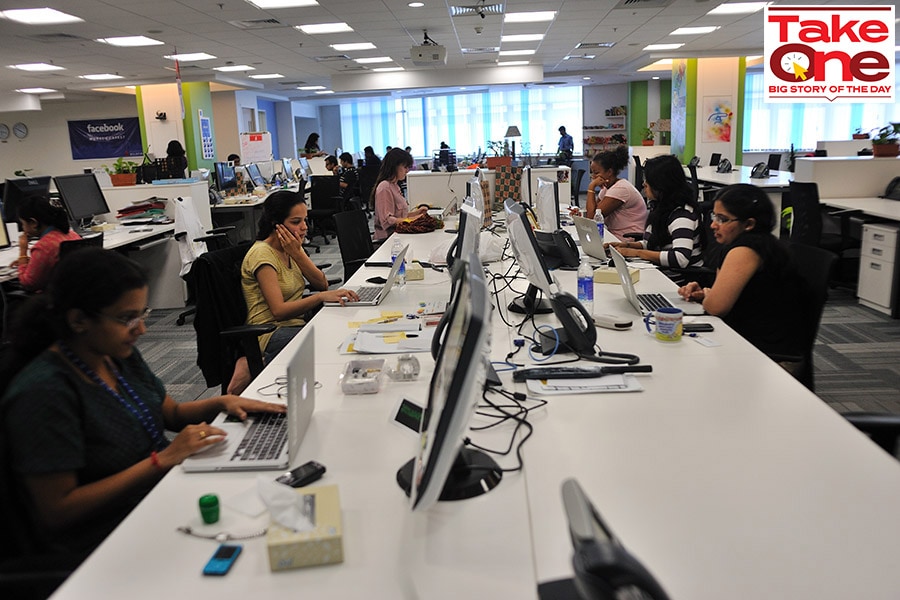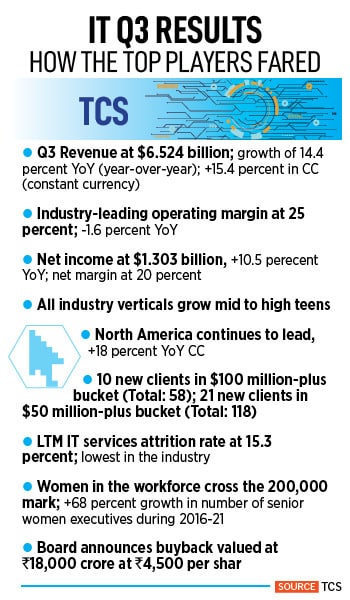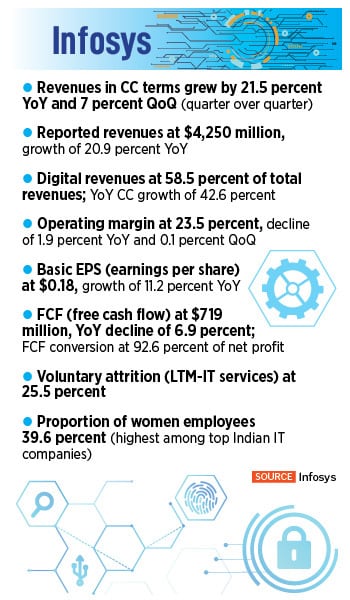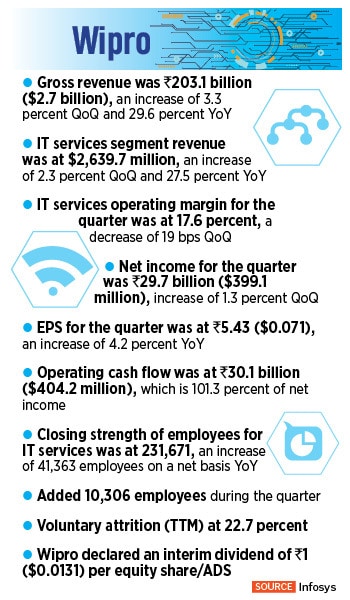
TCS hits $25 billion after Q3, but smaller rival Infosys is growing faster
The top companies' latest numbers also spotlight greater participation by women, overall, with the top IT companies seeing women make up close to 40 percent of their workforce
 TCS returned its best fiscal third quarter performance in five years, with revenue growth of 15.4 percent over the same period last year in constant currency terms(Representational image)
TCS returned its best fiscal third quarter performance in five years, with revenue growth of 15.4 percent over the same period last year in constant currency terms(Representational image)
Image: Lynsey Addario/Getty Images
Tata Consultancy Services (TCS), Infosys and Wipro, all reported strong growth for their fiscal third-quarter, reflecting the sustained faster adoption of cloud computing and digital technologies in their biggest markets. Shares were up in early Mumbai trading for TCS and Infosys.
The numbers—released on Wednesday—are also beginning to reflect the battle lines among the rivals not only for contracts, but also talent. Infosys has clearly come out ahead in revenue growth while TCS has reported a much more stable staff churn. Infosys aggressively kicked up its revenue forecast for the full fiscal, making it the third increase in its guidance in the nine months through December 2021.
TCS hit the $25 billion revenue milestone for the calendar year 2021, and reported growth of 18 percent in America, its biggest market, for the three months ended December 31. Overall, TCS returned its best fiscal third quarter performance in five years, with revenue growth of 15.4 percent over the same period last year in constant currency terms.
“We’ve had an exceptional quarter,” TCS CEO and MD Rajesh Gopinathan said in an online conference with the media on January 12. “We continue to see strong traction across the board.”




 A confluence of many factors—all accelerated by the Covid pandemic—is making the outlook really promising for India’s top IT services companies. Fence-sitters are finally taking the plunge into the clouds, pushing the as-a-service model to new heights; AI (artificial intelligence) is beginning to deliver, and 5G is rolling out around the world, bringing private enterprise networks and the promise of IoT (Internet of Things) closer to reality. In all of this, software holds the key.
A confluence of many factors—all accelerated by the Covid pandemic—is making the outlook really promising for India’s top IT services companies. Fence-sitters are finally taking the plunge into the clouds, pushing the as-a-service model to new heights; AI (artificial intelligence) is beginning to deliver, and 5G is rolling out around the world, bringing private enterprise networks and the promise of IoT (Internet of Things) closer to reality. In all of this, software holds the key.  At
At  “We expect calendar year 2022 to be another robust year of growth for IT services led by accelerated transformation and cloud migration and pent-up demand,” analysts Kawaljeet Saluja and Satishkumar S at Mumbai’s Kotak Securities said in a note to clients.
“We expect calendar year 2022 to be another robust year of growth for IT services led by accelerated transformation and cloud migration and pent-up demand,” analysts Kawaljeet Saluja and Satishkumar S at Mumbai’s Kotak Securities said in a note to clients. 



